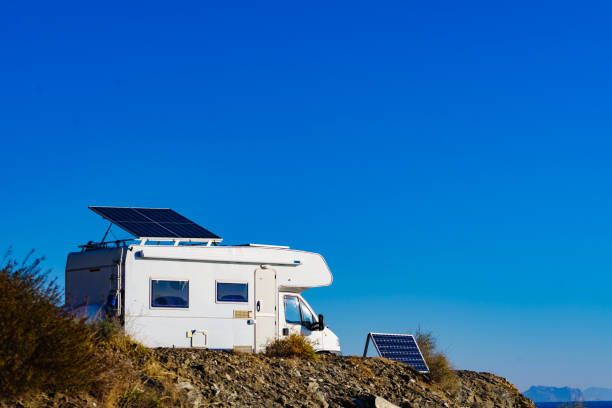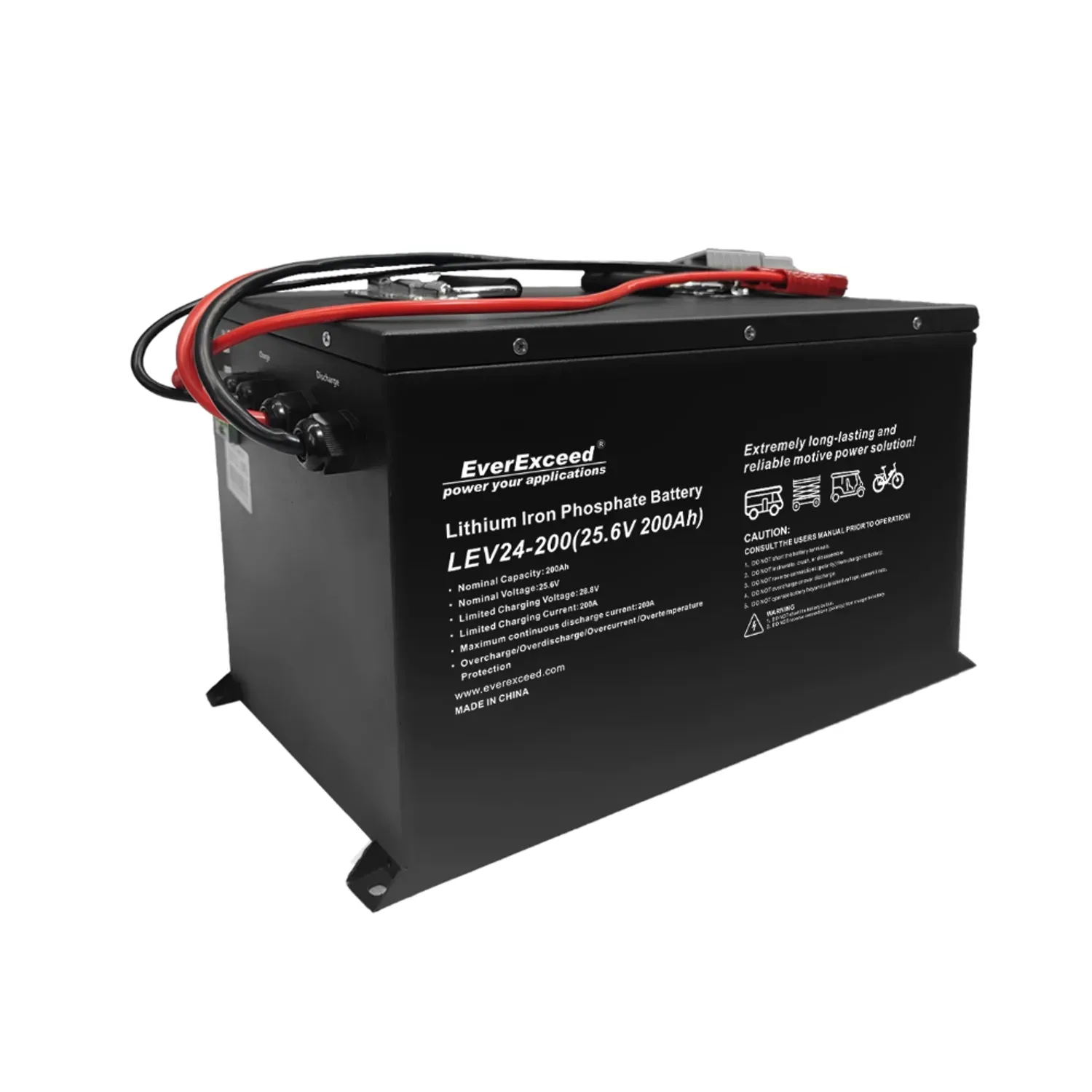
Get a Quote
What Is the Best Battery for RVs? A Comprehensive Guide
When you're on the road with your RV, having a reliable battery system is critical, especially if you're planning long trips or boondocking (camping without hookups). The battery you choose will power everything from your lights to your appliances, making it essential to select the best one for your specific needs. This guide will help you navigate the different types of RV batteries, how to choose the right one, and some top recommendations to make your journey worry-free.
What are the Different Types of RV Batteries?
Choosing the right battery begins with understanding the various types available. Below is a breakdown of the main types of RV batteries and their key characteristics.
Lead-Acid RV Batteries
Lead-acid batteries are the most common and affordable RV batteries. They come in two types: flooded lead-acid and sealed lead-acid (AGM).
- Advantages:
- Low upfront cost.
- Widely available.
- Disadvantages:
- Regular maintenance is required for flooded types (e.g., checking water levels).
- Shorter lifespan compared to other battery types.
- Best For: Occasional RV users who are cost-conscious.
AGM RV Batteries
Absorbed Glass Mat (AGM) batteries are sealed lead-acid batteries that require no maintenance and are resistant to vibrations.
- Advantages:
- No need for maintenance.
- More durable and longer lifespan than flooded batteries.
- Faster recharge times.
- Disadvantages:
- Higher cost compared to flooded lead-acid batteries.
- Best For: Users looking for a balance of affordability and durability without the hassle of maintenance.
RV Gel Batteries
Gel batteries are another type of sealed lead-acid battery, using a gel-like substance as the electrolyte.
- Advantages:
- Performs well in extreme temperatures.
- Deep discharge capabilities.
- Disadvantages:
- Higher cost and less common for RVs.
- Sensitive to overcharging.
- Best For: RVers in harsh environments who need a durable, long-lasting option.
RV Lithium-Ion Batteries
Lithium-ion batteries, particularly LiFePO4, are becoming the go-to choice for serious RVers. They are lightweight, long-lasting, and require little to no maintenance.
- Advantages:
- Long life cycle (up to 6,000 cycles).
- Lightweight and compact.
- High energy density and fast charging.
- Disadvantages:
- High upfront cost.
- Best For: Full-time RVers and those who boondock frequently, needing a reliable and high-performing battery.
How to Choose the Best Battery for Your RVs?
Choosing the right RV battery depends on several factors, such as your energy needs, budget, and the type of trips you take. Here are the key considerations.
Battery Capacity: How Much Power Do You Need?
The battery capacity determines how long your battery can power your RV without recharging. Capacity is usually measured in Amp-hours (Ah) or kilowatt-hours (kWh).
- Small RV: For minimal power needs, such as lights and basic appliances, a 100Ah lead-acid battery might suffice.
- Large RV: For full-time RV living with high energy consumption (fridge, A/C, etc.), you'll need at least 200-300Ah of battery capacity, with lithium batteries offering the most efficient storage.
RV Type | Recommended Capacity | Ideal Battery Type |
|---|---|---|
Small RV/Camper | 100-150Ah | Lead-Acid or AGM |
Mid-Sized RV | 150-250Ah | AGM or Lithium-Ion |
Full-Time RV | 250-400Ah | Lithium-Ion |
Cycle Life: Why Longevity Matters
The cycle life refers to the number of charge and discharge cycles a battery can handle before it loses capacity.
- Lead-Acid: 500-1,000 cycles.
- AGM: 600-1,000 cycles.
- Lithium-Ion: 3,000-6,000 cycles.
For full-time RVers or those who frequently travel, lithium-ion batteries offer the best value for money due to their extended cycle life.
Weight and Size Considerations
Battery weight and space are important, especially in smaller RVs. Lithium-ion batteries are much lighter than lead-acid ones, making them ideal if you're looking to minimize weight.
- Lead-Acid: Heavier and bulkier.
- Lithium-Ion: Lightweight and compact.
Top Recommended Batteries for RVs
Here are some of the best batteries based on user needs:
Best Overall: Lithium-Ion Batteries for Long-Term Use
- Model: EverExceed LiFePO4 100Ah 12V Deep Cycle Battery
- Capacity: 100Ah.
- Cycle Life: 3,000-5,000 cycles.
- Advantages: Lightweight, maintenance-free, fast charging.
- Best For: Full-time RVers and boondockers.
Best Budget Option: Lead-Acid Batteries
- Model: VMAXTANKS 12V AGM Deep Cycle Battery
- Capacity: 125Ah.
- Cycle Life: 500-1,000 cycles.
- Advantages: Affordable and durable.
- Best For: Casual RV users.
Best for Boondocking: AGM and Lithium Batteries
- Model: Renogy Deep Cycle AGM Battery 100Ah
- Capacity: 100Ah.
- Cycle Life: 600-1,000 cycles.
- Advantages: Maintenance-free, good in cold weather.
- Best For: Off-grid RV camping (boondocking).

Key Features to Consider When Buying an RV Battery
Maintenance Requirements: Lead-Acid vs. Maintenance-Free
- Lead-Acid Batteries: Require regular maintenance, such as checking water levels and cleaning terminals.
- AGM and Lithium-Ion: Maintenance-free, making them ideal for RVers who prefer low upkeep.
Charging Time and Efficiency
- Lithium-Ion Batteries: Charge faster than lead-acid batteries.
- AGM Batteries: Charge moderately fast, but not as fast as lithium-ion.
Safety Features: Why Protection Matters
Look for batteries with built-in overcharge protection, thermal management, and water resistance. These features are especially important for lithium-ion batteries.
Common RV Battery Mistakes and How to Avoid Them
Overloading the Battery
Ensure that your battery system can handle the total wattage of your appliances. Using too many high-powered devices at once can shorten your battery's life.
Ignoring Maintenance on Lead-Acid Batteries
If you opt for lead-acid batteries, neglecting maintenance can significantly reduce their lifespan. Regularly check the water levels and clean the terminals to keep your battery in good condition.
Conclusion: Which Battery Is Best for Your RV?
Ultimately, the best battery for RVs depends on your specific needs:
- Casual Users: Lead-acid or AGM batteries offer a balance of performance and affordability.
- Full-Time RVers: Lithium-ion batteries provide the best long-term value due to their extended cycle life, fast charging, and low maintenance needs.
- Boondocking: AGM and lithium-ion batteries are ideal for off-grid adventures due to their deep cycle capabilities and reliable performance.
Choose EverExceed's Lithium Battery for RV and embark on your next adventure with confidence, knowing that you have the power to fuel unforgettable experiences.
FAQs about RV Batteries:
What Is the Best Battery for Full-Time RVing?
Lithium-ion batteries are the best choice due to their longevity and efficiency.
How Long Do RV Batteries Last?
Lead-acid batteries last around 3-5 years, while lithium-ion batteries can last up to 10-15 years.
Can I Mix Different Types of Batteries in My RV?
It's not recommended to mix battery types, as different chemistries have different charging and discharging characteristics.

